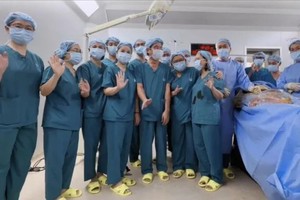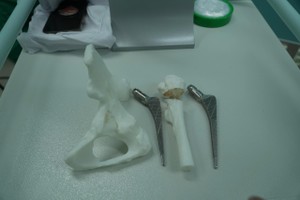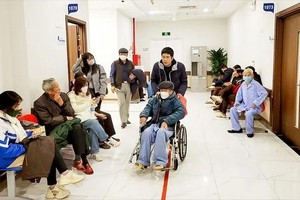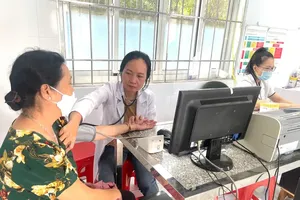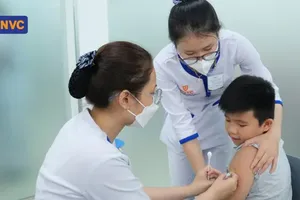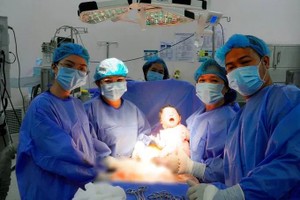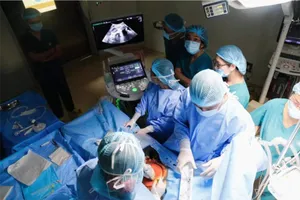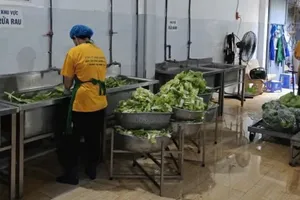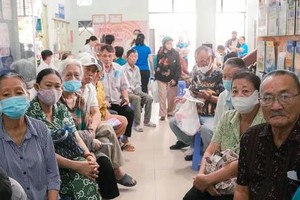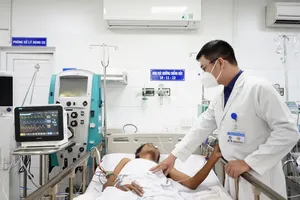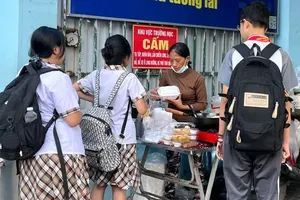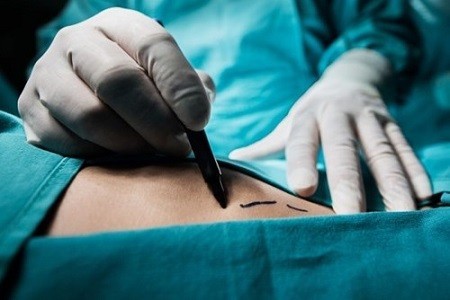 |
Illustrative photo |
For many patients in need of vital organ transplants, life is a waiting game; thus, they try to find all ways at any cost to even follow the instructions of criminals, spend a large of money, and help criminals to conceal the crimes.
This is one of the reasons why the sale of human organs has become more complicated in recent times.
Senior Colonel Dinh Van Trinh, Deputy Head of Division 5, Criminal Police Department under the Ministry of Public Security, said the demand for tissue and organ transplants in Vietnam was huge and increasing all over the country whereas deceased-donor transplants are falling further behind the number of patients awaiting life-saving organs.
Over the past time, police officers in localities have detected and busted human organ trafficking rings.
For instance, the Criminal Police Department has arrested some people in a criminal group that sells kidneys to Cambodia led by Ton Nu Thi Huyen and her accomplices. The criminals have sold Vietnamese people’s kidneys to foreigners in Cambodia. These criminals searched sellers in Ho Chi Minh City and many other localities across the country. Most organ sellers are people from poor families who will be taken to Cambodia for organ surgeries.
The Criminal Police Department in Hanoi also investigated and clarified the case of buying and selling and appropriating human tissues or organs in Ha Dong District. They were prosecuting four people in the case; At the same time, three other kidney transactions from May 2021 to October 2021 of the above criminals were being investigated.
According to Colonel Trinh, the profits from criminal activities can be very large, and human body parts taken abroad can cost many billions of Vietnamese dongs - this is a motivation for the crime. Many mobsters have relationships with authorized medical staff to schedule quick surgery, connect to quickly review records and hide commercial elements.
Besides, organ vendors in the cases always assisted organ traffickers to hide the crime. Many victims fall into financial difficulty due to their participation in social evils such as gambling and cannot afford to pay while due to their limited awareness, other victims have thought that selling such body parts is not too serious for their health. Human trafficking victims are often misled about the nature and medical consequences of the transplantation procedure.
However, according to experts, kidney sellers in the trafficking cases assessed have suffered health consequences from at least 45-69 percent, even putting their lives at risk during testing and surgery.
A representative of the Criminal Police Department said that organ brokers have looked for buyers and sellers via social network platforms, then set the prices between buyers and sellers.
Many criminals have been victims of this type of crime in the past, so they have clearly understood the high demand and profits; as a result, they have colluded and connected with other bad guys to set up a trafficking ring.
Criminals have more and more sophisticated and cunning tricks to hide their crimes. They work in groups and each member of the group has different tasks such as approaching and getting acquainted with buyers and sellers; testing, price agreement; fake documents to conceal commercial purposes under humanitarian and non-profit reasons.
Especially, gangsters surfed social networks to quickly approach buyers and sellers secretly. The mastermind and leader do not directly participate in approaching victims and buyers, but other people will approach, guide and request the victim's family to write papers and applications for organ donation.
As of December 31, 2022, more than 63,000 people in the country registered organ donation after death, or brain death and more than 7,200 organ transplants of eight human organs have been carried out.
Amongst eight human organs, the number of people with kidney failure waiting for a transplant is large and over 6,000 people underwent kidney transplants, followed by liver, heart, lung, kidney, pancreas and intestine transplants.
